Salwa Mostafa
Intent-Aware DRL-Based Uplink Dynamic Scheduler for 5G-NR
Mar 27, 2024



Abstract:We investigate the problem of supporting Industrial Internet of Things user equipment (IIoT UEs) with intent (i.e., requested quality of service (QoS)) and random traffic arrival. A deep reinforcement learning (DRL) based centralized dynamic scheduler for time-frequency resources is proposed to learn how to schedule the available communication resources among the IIoT UEs. The proposed scheduler leverages an RL framework to adapt to the dynamic changes in the wireless communication system and traffic arrivals. Moreover, a graph-based reduction scheme is proposed to reduce the state and action space of the RL framework to allow fast convergence and a better learning strategy. Simulation results demonstrate the effectiveness of the proposed intelligent scheduler in guaranteeing the expressed intent of IIoT UEs compared to several traditional scheduling schemes, such as round-robin, semi-static, and heuristic approaches. The proposed scheduler also outperforms the contention-free and contention-based schemes in maximizing the number of successfully computed tasks.
Intent Profiling and Translation Through Emergent Communication
Feb 05, 2024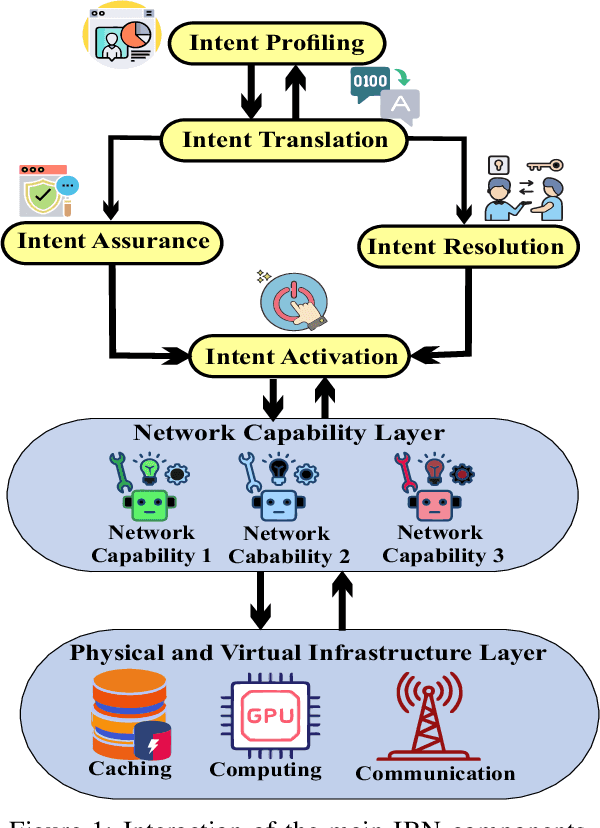
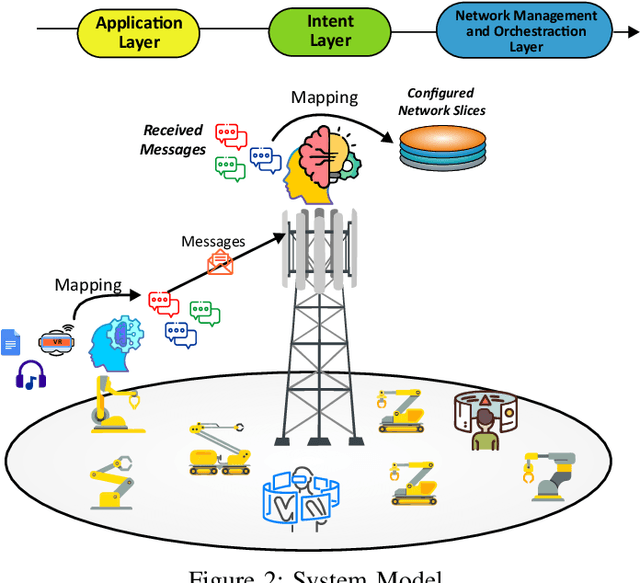
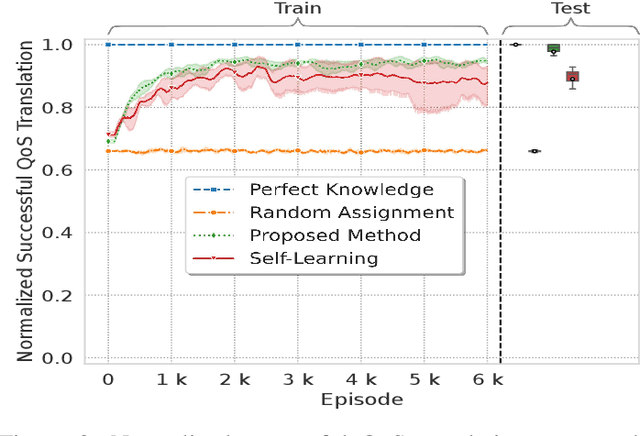
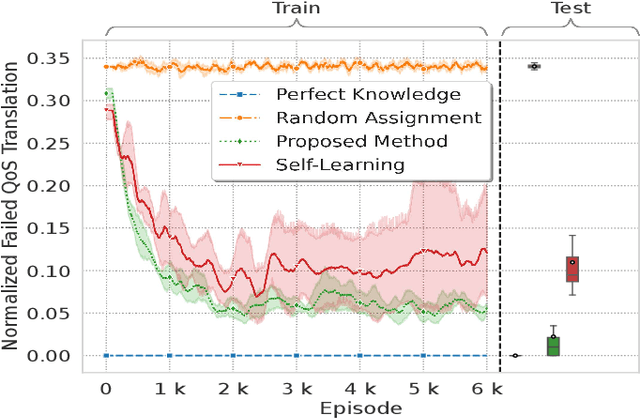
Abstract:To effectively express and satisfy network application requirements, intent-based network management has emerged as a promising solution. In intent-based methods, users and applications express their intent in a high-level abstract language to the network. Although this abstraction simplifies network operation, it induces many challenges to efficiently express applications' intents and map them to different network capabilities. Therefore, in this work, we propose an AI-based framework for intent profiling and translation. We consider a scenario where applications interacting with the network express their needs for network services in their domain language. The machine-to-machine communication (i.e., between applications and the network) is complex since it requires networks to learn how to understand the domain languages of each application, which is neither practical nor scalable. Instead, a framework based on emergent communication is proposed for intent profiling, in which applications express their abstract quality-of-experience (QoE) intents to the network through emergent communication messages. Subsequently, the network learns how to interpret these communication messages and map them to network capabilities (i.e., slices) to guarantee the requested Quality-of-Service (QoS). Simulation results show that the proposed method outperforms self-learning slicing and other baselines, and achieves a performance close to the perfect knowledge baseline.
Emergent Communication Protocol Learning for Task Offloading in Industrial Internet of Things
Jan 23, 2024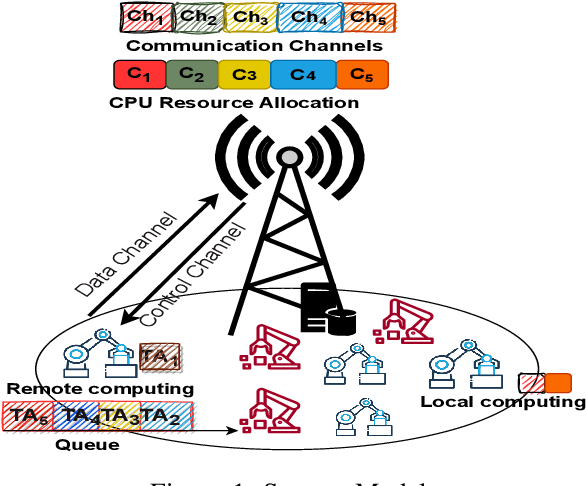
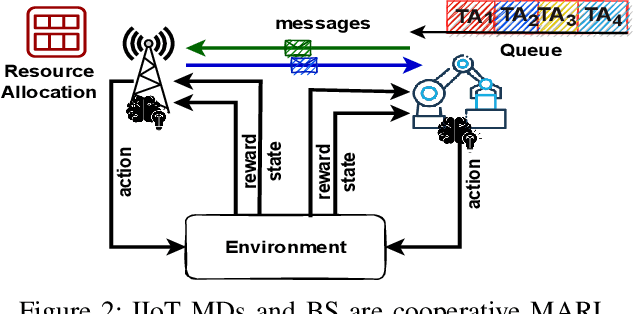
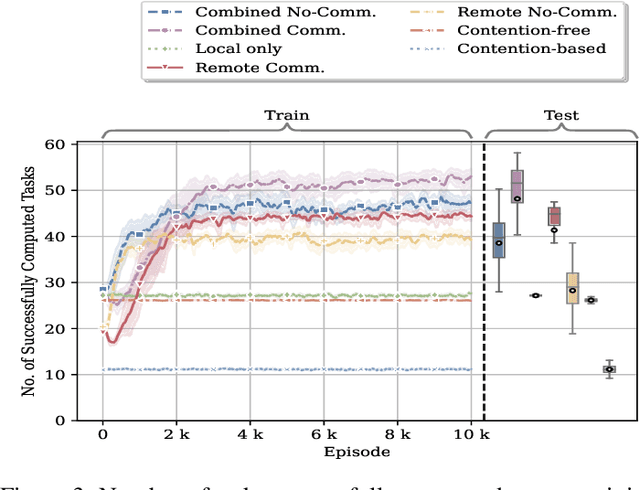
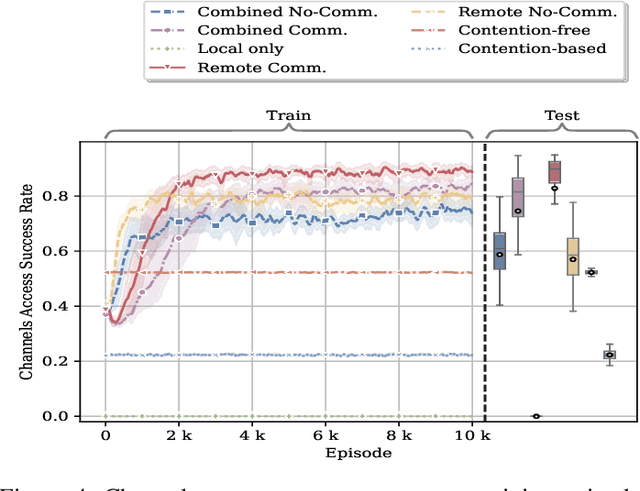
Abstract:In this paper, we leverage a multi-agent reinforcement learning (MARL) framework to jointly learn a computation offloading decision and multichannel access policy with corresponding signaling. Specifically, the base station and industrial Internet of Things mobile devices are reinforcement learning agents that need to cooperate to execute their computation tasks within a deadline constraint. We adopt an emergent communication protocol learning framework to solve this problem. The numerical results illustrate the effectiveness of emergent communication in improving the channel access success rate and the number of successfully computed tasks compared to contention-based, contention-free, and no-communication approaches. Moreover, the proposed task offloading policy outperforms remote and local computation baselines.
 Add to Chrome
Add to Chrome Add to Firefox
Add to Firefox Add to Edge
Add to Edge